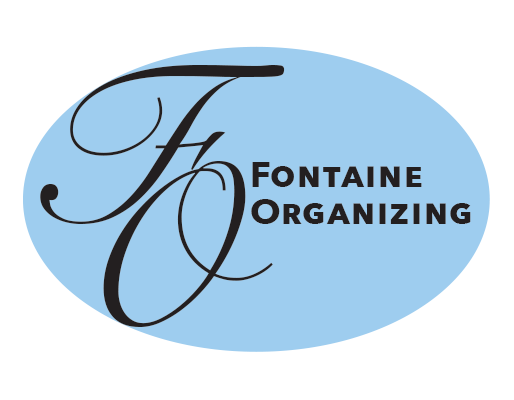Hoarding? You Have the Power to Change
Have you seen the shows Hoarders or Hoarding: Buried Alive? With morbid curiosity, you might watch and wonder if you rise to the level of a “hoarder”. Or maybe you have a family member who has accused you of hoarding. Or maybe you heard somewhere that if you have trouble parting with your belongings you are definitely a hoarder.
There are specific criteria that can identify a person as a hoarder. Some of the criteria for diagnosis of Hoarding Disorder, according to the Diagnostic and Statistical Manual, Fifth Edition (DSM-V), are “persistent difficulty discarding or parting with possessions, regardless of their actual value” and “the difficulty discarding possessions results in the accumulation of possessions that congest and clutter active living areas and substantially compromises their intended use”. In the field of Professional Organizing, we’re supposed to tell people that only a mental health professional can “diagnose” hoarding, however, we’re the ones in people’s homes so the Institute for Challenging Disorganization developed the Clutter-Hoarding Scale to help people identify where they stand on the disorganization spectrum. Anything Level III or greater is considered hoarding.
“Despite there being diagnostic and evaluative information available to be able to label people with a diagnosis or problem, I actually don’t think it’s helpful at all.”
Despite there being diagnostic and evaluative information available to be able to label people with a diagnosis or problem, I actually don’t think it’s helpful at all. Creating a label doesn’t change a situation, action does. It doesn’t particularly matter why you arrived at a full house. What matters is what you do going forward. What do you need to do to make new decisions? How will you clear the space? How will you prevent it from getting this bad again?
Looking for labels often has the effect of creating a dependence on an external locus of control for something that people have independent control over. With the diagnosis of hoarding you can say, “Of course I can’t throw anything away. I’m a helpless victim of my hoarding disorder.” In truth, you have full control over every single decision you make. Ordered too much on Amazon? You made a choice. Let your snack wrapper fall to the floor and left it there? You made a choice. Kept a gift you hate because a loved one gave it? You made a choice.
If you made choices that, as they piled up, led to an overflowing house, then you have the complete power to make different choices now and going forward. You might have to ease into it after years of making harmful choices, but the choices are yours to make all the same.
Pick a couple of minor impact choices to practice with. Here are some options that might apply to your situation:
When you accidentally drop something on the floor, pick it up immediately. If you have physical limitations that make it harder to do this each time, set a timer for once or twice a day and do all the picking up at scheduled intervals.
When decluttering, catch yourself thinking, “I can’t get rid of this because…”. Reframe it to, “I’m choosing not to get rid of this. That choice is contributing to my clutter. Would it be helpful for me to make a different choice?”
Identify something that you are on the fence about discarding. Pick something that feels uncomfortable but not terrifying. Say out loud, “I choose to let go of this because I’m in control of my choices” and then LET IT GO.
Next time you recognize that your mind is saying you have no choice but to take a certain action (or stay in inaction), practice identifying one other choice that a friend or family member might make if they were in your place. Recognize that if they have that choice available to them, so do you.
It’s tempting to look for excuses for why we are who we are and do the things that we do (or don’t). Those excuses can cripple us and prevent us from recognizing that every decision we make and action we take is fully within our current control. In therapy a diagnosis of hoarding can give you a jumping off point to start exploring how the impact of various life circumstances might have led you to where you are now, but it won’t change your decision in the day-to-day, moment-to-moment of your life. New opportunities for new choices are presented to you hundreds of times a day. Did you make an unhelpful choice 10 minutes ago when you didn’t pick up the candy wrapper you dropped by your chair? That’s ok. You can make a different decision now and pick it up.
All is not lost. You are not a lost cause. You can start making different decisions right now. You can change your life. No diagnosis or explanation needed.




